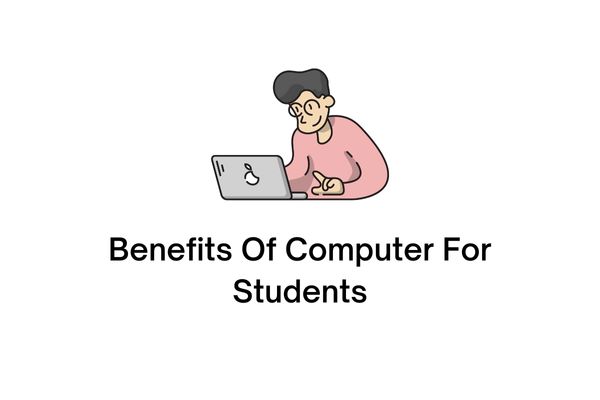What are the benefits of computer for students? In today’s digital age, computers have become an essential tool for students. Gone are the days when textbooks and handwritten assignments ruled the academic world. Now, laptops and desktops have taken their place, revolutionizing the way students learn, research, and communicate. The benefits of computers for students are numerous, and they play a vital role in shaping their educational journey. Let’s explore some of the advantages that computers bring to the table.
1. Access to a Vast Pool of Information
One of the greatest benefits of computers for students is the ability to access a vast pool of information. With just a few clicks, students can search for any topic they desire and find an abundance of resources at their fingertips. This access to information enhances their understanding of subjects, encourages independent learning, and promotes critical thinking skills.
2. Online Learning Opportunities
Computers have opened up a world of online learning opportunities for students. Through various platforms and websites, students can take online courses, attend webinars, and access educational materials created by experts from around the globe. This flexibility allows students to expand their knowledge beyond the traditional classroom setting and learn at their own pace.
3. Efficient Organization and Time Management
Computers offer students effective organizational tools that can significantly improve their time management skills. With digital calendars, to-do lists, and reminder apps, students can keep track of their assignments, deadlines, and other important tasks. This helps in eliminating procrastination and ensures that students stay on top of their academic responsibilities.
4. Enhanced Communication and Collaboration
Computers have revolutionized the way students communicate and collaborate with their peers and instructors. Email, messaging apps, and online discussion forums make it easy for students to connect with others, seek guidance, and engage in meaningful discussions. This fosters a sense of community and promotes a collaborative learning environment.
5. Multimedia Learning Experiences
With computers, students can immerse themselves in multimedia learning experiences. Educational videos, interactive simulations, and virtual reality applications make complex concepts more engaging and easier to comprehend. This multi-sensory approach to learning enhances student engagement and retention of information.
6. Increased Creativity and Productivity
Computers open up a world of possibilities for students to unleash their creativity and enhance their productivity. From designing visually appealing presentations to creating digital artwork, students can explore their creative talents using various software and tools. Moreover, computers enable efficient research and writing, allowing students to produce high-quality assignments and projects.
7. Preparation for the Digital Workforce
As we live in a digital era, proficiency in computer skills has become a necessity for future employment. By using computers from an early age, students develop the technical skills required in the workplace. They learn to navigate software, manage digital files, and adapt to emerging technologies, making them well-prepared for the demands of the digital workforce.
8. Personalized Learning
Every student has a unique learning style and pace. Computers can cater to these individual needs through personalized learning programs and adaptive educational software. These tools analyze the student’s progress, identify areas of weakness, and provide tailored learning materials and exercises. This personalized approach to learning maximizes student engagement and academic growth.
9. Global Awareness and Cultural Exchange
The internet opens the doors to global awareness and cultural exchange. With computers, students can connect with peers from different countries, participate in international online projects, and learn about different cultures and perspectives. This exposure fosters tolerance, empathy, and a broader understanding of the world, preparing students to become global citizens.
10. Career Opportunities and Skill Development
Lastly, computers offer students a wide range of career opportunities and skill development. Proficiency in coding, data analysis, graphic design, and digital marketing are highly sought after in today’s job market. By utilizing computers, students can acquire these valuable skills and increase their chances of securing fulfilling careers in the ever-evolving digital landscape.
In conclusion, the benefits of computers for students are undeniable. From access to vast information and online learning opportunities to enhanced organization, communication, and creativity, computers have revolutionized education. They provide students with the tools and skills they need to thrive in the digital age and prepare them for a successful future. Embracing computers as an educational tool opens up a world of possibilities, empowering students to achieve their full potential.
